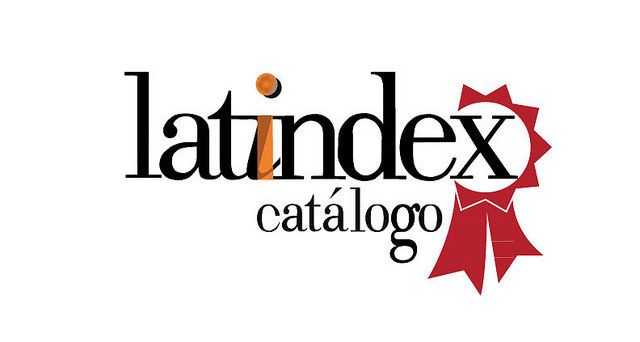Criticizing decoloniality and its criticism
DOI:
https://doi.org/10.29340/en.v6n12.336Keywords:
decoloniality, post-imperialism, modernities, indigeneity of power, coloniality of power, nationality of power, globality/imperiality of powerAbstract
The practice of criticism is one of the main ways of refining the debates in the social sciences. In this
sense, David Lehmann’s text is welcome. Nevertheless, I am not totally in agreement with various aspects of his
criticism. I underscore, in particular, his negation of the historically objective character of racism and of its
consequences and his lack of consideration for the complexity of the articulations within and between them that
drive modern indigenous movements. His concepts about universalism also seem debatable. But I agree with his
opinion that there is a simplification of Western thought and modernity by decolonialists, a strong criticism also
made in recent years by one of the founders of decolonial thought, Santiago Castro-Gómez, which I present in my
text. Finally, I show my disagreement with what I call the heuristic hypertrophy of colonialism made by decolonialists
and introduce, in addition to the coloniality of power, the notions of indigeneity, nationality, globality, and
imperiality of power.
Downloads
References
Albuquerque de Moraes, Renata (2019). “Políticas indígenas: análise a partir do Território Indígena e Parque Nacional Isiboro Sécure (TIPNIS), Bolívia”, tesis de doctorado, Programa de Posgrado en Antropología Social, Universidad de Brasilia, 2019.
Balandier, Georges (1951). “La situation coloniale. Approche théorique”, Cahiers Internationaux de Sociologie, vol. 11, pp. 44-79.
Ballestrin, Luciana Maria de Aragão (2017). “Modernidade/Colonialidade sem ‘Imperialidade’? O elo perdido do giro decolonial”, Dados. Revista de Ciências Sociais, vol. 60, pp. 505-540. DOI: https://doi.org/10.1590/001152582017127
Castro-Gómez, Santiago (2019). El tonto y los canallas. Notas para un republicanismo transmoderno. Bogotá: Pontificia Universidad Javeriana. DOI: https://doi.org/10.11144/Javeriana.9789587813579
Chakrabarty, Dipesh (2000). Provincializing Europe: Postcolonial Thought and Historical Difference. Princeton: Princeton University Press.
Dussel, Enrique (1993). “Europa, modernidad y eurocentrismo”, en Edgardo Lander (coord.). La colonialidad del saber. Eurocentrismo y Ciencias Sociales. Perspectivas latinoamericanas. Buenos Aires: CLACSO, pp. 41-53.
Heyman, Josiah y Howard Campbell (2009). “The Anthropology of Global Flows: a Critical Reading of Appadurai’s. Disjuncture and Difference in the Global Cultural Economy”, Anthropological Theory, 9, pp. 131-148. DOI: https://doi.org/10.1177/1463499609105474
Lehmann, David (2022). After the Decolonial. Ethnicity, Gender and Social Justice in Latin America. Cambridge: Polity Press. DOI: https://doi.org/10.1007/s10767-022-09437-8
— (2023). “Más allá de la decolonialidad: discusión de algunos conceptos claves”, Encartes Antropológicos, 6 (12). https://doi.org/10.29340/en.v6n11.3
Lins Ribeiro, Gustavo (2003). Postimperialismo. Cultura y poder en el mundo contemporáneo. Barcelona/Buenos Aires: Gedisa.
— (2011). “Why (Post)Colonialism and (De)Coloniality of Power Are Not Enough. A Post-Imperialist Perspective”, Postcolonial Studies (14)3, pp. 285-297. DOI: https://doi.org/10.1080/13688790.2011.613107
— (2018). Otras globalizaciones. Ciudad de México: Gedisa/Universidad Autónoma Metropolitana.
Mignolo, Walter (2000). “The Many Faces of Cosmopolis: Border Thinking and Critical Cosmopolitanism, Public Culture 12(3), pp. 721-748. DOI: https://doi.org/10.1215/08992363-12-3-721
Nogueira, Oracy (1955). “Preconceito racial de marca e preconceito racial de origem: sugestão de um quadro de referência para a interpretação do material sobre relações raciais no Brasil”, Revista Anhembi. São Paulo.
Quijano, Aníbal (1993). “Colonialidad del poder, eurocentrismo y América Latina”, en Edgardo Lander (coord.). La colonialidad del saber. Eurocentrismo y Ciencias Sociales. Perspectivas latinoamericanas. Buenos Aires: CLACSO, pp. 201-246.
Slater, David (2011). “Latin America and the Challenge to Imperial Reason. A Commentary on Arturo Escobar’s Paper”, Cultural Studies 25(3), pp. 450-458. DOI: https://doi.org/10.1080/09502386.2010.527153
Wolf, Eric (1982). Europe and the People Without History. Berkeley: University of California Press.
Downloads
Published
Issue
Section
License
Copyright (c) 2023 Encartes

This work is licensed under a Creative Commons Attribution-NonCommercial 4.0 International License.
Aviso de derechos de autor
- Los autores/as conservan los derechos de autor y ceden a la revista el derecho a la primera publicación con el trabajo registrado con la licencia de atribución Creative Commons, que permite a terceros utilizar lo publicado siempre que mencionen la autoría del trabajo y a la primera publicación en esta revista
- Los autores/as pueden realizar otros acuerdos contractuales independientes y adicionales para la distribución no exclusiva de la versión del artículo publicado en esta revista (por ej. Incluirlo en un repositorio institucional o publicarlo en un libro) siempre que indiquen claramente que el trabajo se publicó por primera vez en esta revista.
El material puede ser copiado, distribuido, comunicado, ejecutado públicamente. Se pueden hacer obras derivadas de él. No se puede utilizar para fines comerciales. Se debe reconocer y citar la obra de la forma en que tú especifiques.










